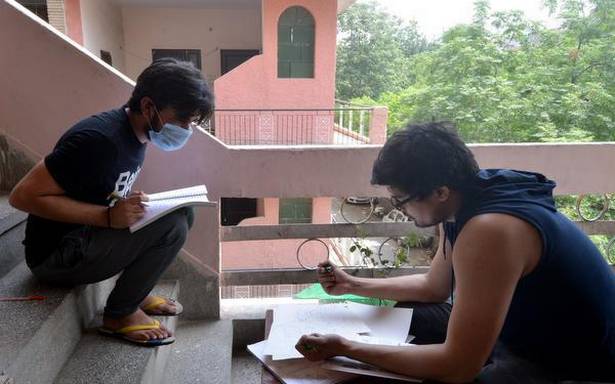The narrow streets of central and north Delhi are cramped with dingy, greying coaching centres, the Mecca for thousands of UPSC aspirants from across the country who want to take a shot at a job in the prestigious Indian administrative services. In the lanes abutting this area are hundreds of rooms and barsatis housing these candidates. Klesh, 28, is from Maharashtra and he had taken a room on rent in Old Rajinder Nagar. He lived a modest life here, studying and working, until the extended lockdown changed everything.
Klesh had somehow managed to scrape together rent for two months but in May when his funds ran dry, he was forced to vacate the room. This, despite orders from the Ministry of Home Affairs on March 29 and the Delhi government on April 22 that said landlords evicting migrant labourers and students are liable to action under the Disaster Management Act, 2005. Landlords, the orders said, cannot demand rent for a period of one month from workers and migrants.
Running dry
“I had no choice but to leave,” says Klesh, as he prepared to depart for Amravati, his home town in Maharashtra, where his family lives in the shanty town of Belpura. He had exhausted every avenue: he had gone twice to the temporary police booth in Old Rajinder Nagar, set up soon after the government orders, but they would not issue a guarantee of rent waiver. Klesh then collected an e-pass to travel back. Klesh’s father is a tailor in Amravati. He used to send his son ₹14,000 a month for rent while Klesh funded other expenses by means of a part-time job as a content writer in a coaching centre nearby. “I spent ₹14,000 on rent, ₹2,000 for the reading hall, ₹3,000 for study material, and ₹5,000 on living expenses,” says Klesh. When the lockdown was declared, his father’s income dried up, and so did the rent money. “I skipped meals to save money for rent,” says the student, but with the lockdown extension in May, he ran out of money entirely. “I felt reassured because I had the Delhi government circular in hand,” he says.
Same boat b

